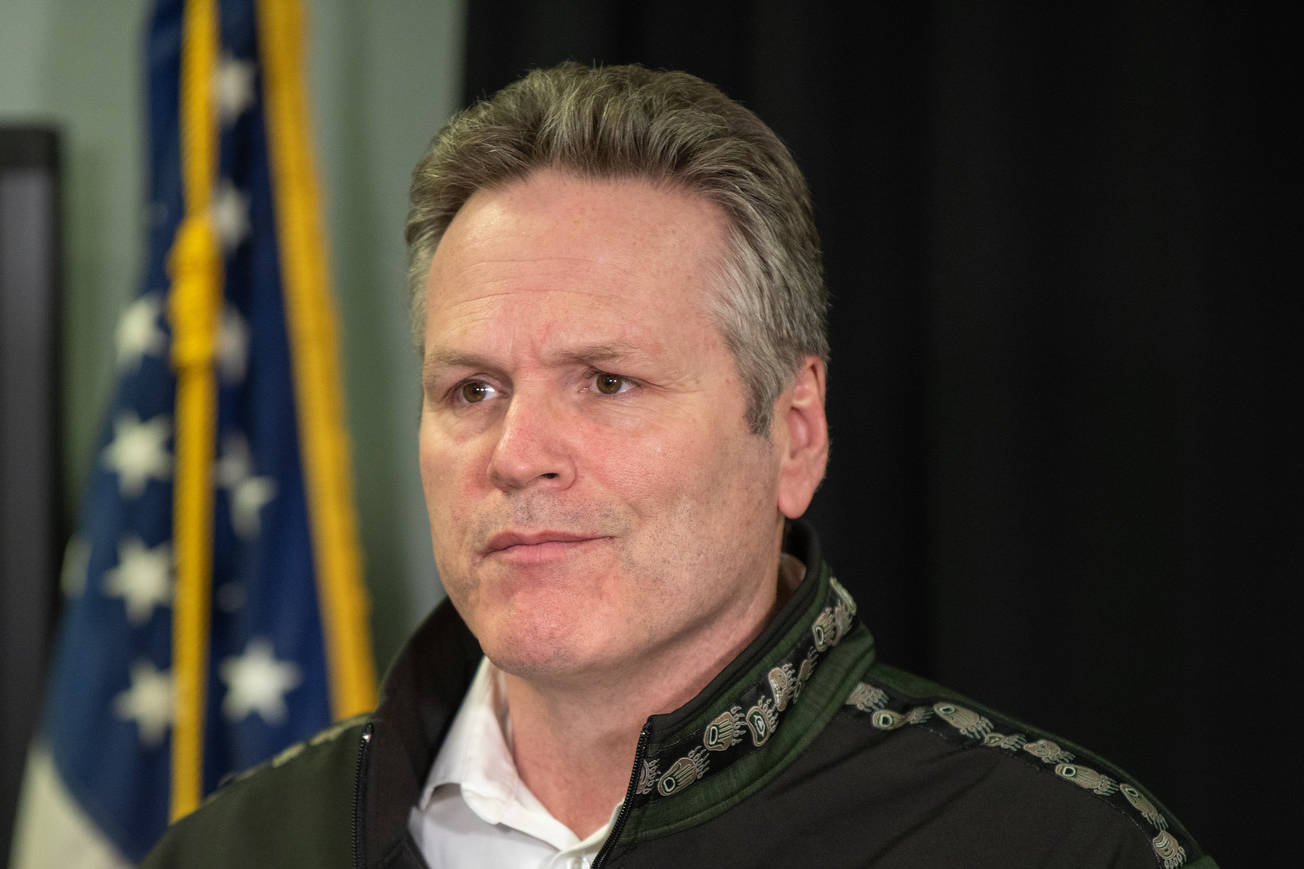Tasked with providing services across the vast wilderness and vibrant communities of the nation’s largest state, Alaska’s battalion of state workers keep our state running.
For many Alaskans, a state trooper is the first friendly face they’ll see on their worst day. When they find themselves out of work, they know they’ll receive prompt processing of their unemployment claim. When a small businessowner dials the state’s 1-800 number, they expect a loan officer to pick up and help them access the working capital they need to pay their hardworking employees.
Whatever hardship Alaskans face, the business of the state must go on.
But I also understand the unique concerns of our dedicated public servants. My commissioners and I are hard at work rolling out additional processes and tools that will keep our state workers healthy in the coming weeks.
Already, over 50 percent of Department of Administration employees are teleworking and immediate safety measures have been implemented at state offices. Much like the wider coronavirus response, new issues are being addressed daily, and my administration remain open to the concerns of state employees and Alaskans.
For example, department leadership is working to reinforce my directive that work-from-home decisions reside with division supervisors in coordination with department leadership. If a department believes remote work is feasible, I stand behind that decision. Likewise, we continue to emphasize that departments must prioritize the protection of our vulnerable state workers.
But it’s important to remember that many critical state roles are not compatible with remote work. Often, employees deal with sensitive personal data that must be accessed via a secure state network. Many operate phone banks that cannot be transferred to personal cellphones. Others staff correctional facilities, plow the roads, or protect our communities.
While some businesses have been able to make the arduous transition to remote work, a similar state transition would require many thousands of secure laptops, countless cellphones, and the infrastructure to support this monumental transition. High-quality internet capable of supporting conferencing is not always available at each employee’s residence, and those with access are often subject to data caps.
Nevertheless, telework is occurring on a wide scale and remains a top priority of my administration. In some cases, departments are pursuing unorthodox ideas like allowing certain employees to take their desktop computers home. The number of off-campus workers will continue to rise as we innovate and clear red tape.
For those who must report to the office, we are doing everything possible to provide a safe environment. Six feet of separation between workstations, physical barriers, hand sanitizer at every main entrance, and alternate work schedules for crowded work areas are being implemented wherever possible.
For employees with concerns about sanitation supplies, workers can reach out to their procurement leads who are standing by to rectify these outliers. We can always do more to protect our state workers, and I will diligently continue that work in the days ahead.
Alaskans across the Last Frontier are facing adversity with courage — be it losing a job, shuttering a business, or risking personal safety to staff a local emergency room. It’s just who we are. Now more than ever, Alaskans appreciate their state workers standing behind them.
I want to assure my fellow Alaskans that your government is here for you. Whether it be from home or the office, Alaska’s valiant state workforce will remain at their posts, ready to serve you and guide our great state through these uncharted waters.
Together, we will get through these uncertain times and we will emerge stronger and more united than ever.

